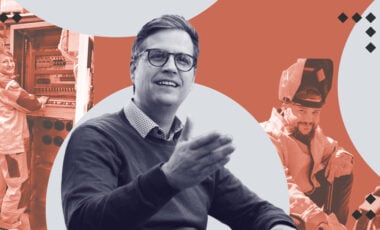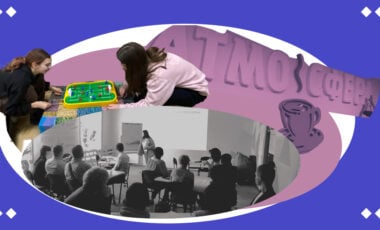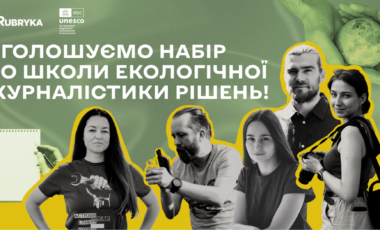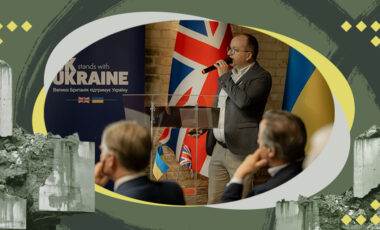Displaced Ukrainians have self-funded and built apartment building for 105 families
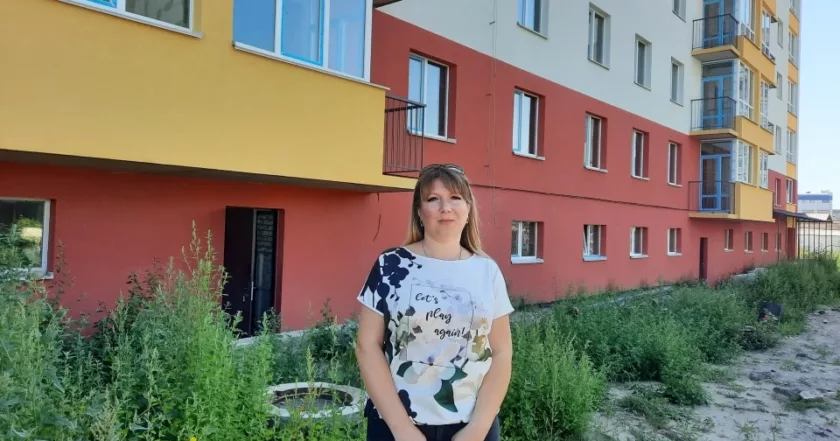
A new high-rise building was recently finished in Ukraine's central city of Vinnytsia.
The Ukrainian media "20 Minutes" reports that it has an exciting history and currently has the lowest cost of apartments in the city. The house was built for 105 families. Displaced Ukrainians made it with their own money. Families affected by Russia's war will soon settle here.
"In the yard, we plan to arrange a playground, a place for recreation, and green areas. On the other side, there will be a parking lot," says the deputy head of the Union of Migrants "Common Cause," Eleonora Rudenko, a displaced woman, who has been in Vinnytsia since 2014 when Russia started its war of aggression. Before that, Eleonora lived in Sloviansk, Donetsk region.
Rudenko's public organization takes care of 35 communities in the Vinnytsia region. By the end of 2023, the organization plans to open a unique apartment building built by the IDPs with their money.
"Common Cause" was created in 2015 by displaced persons from Donetsk and Luhansk regions and Crimea. After two years of active work, they realized that the issue of housing for IDPs was not on the agenda, so they set out to solve the problem on their own — to create a cooperative and build a building at their own expense.
Eleonora Rudenko became the executive director at the housing and building cooperative of "Common Cause."
She says that the organization initially had grandiose plans — to attract local and state authorities or to participate in lending programs. But with time, it made its adjustments.
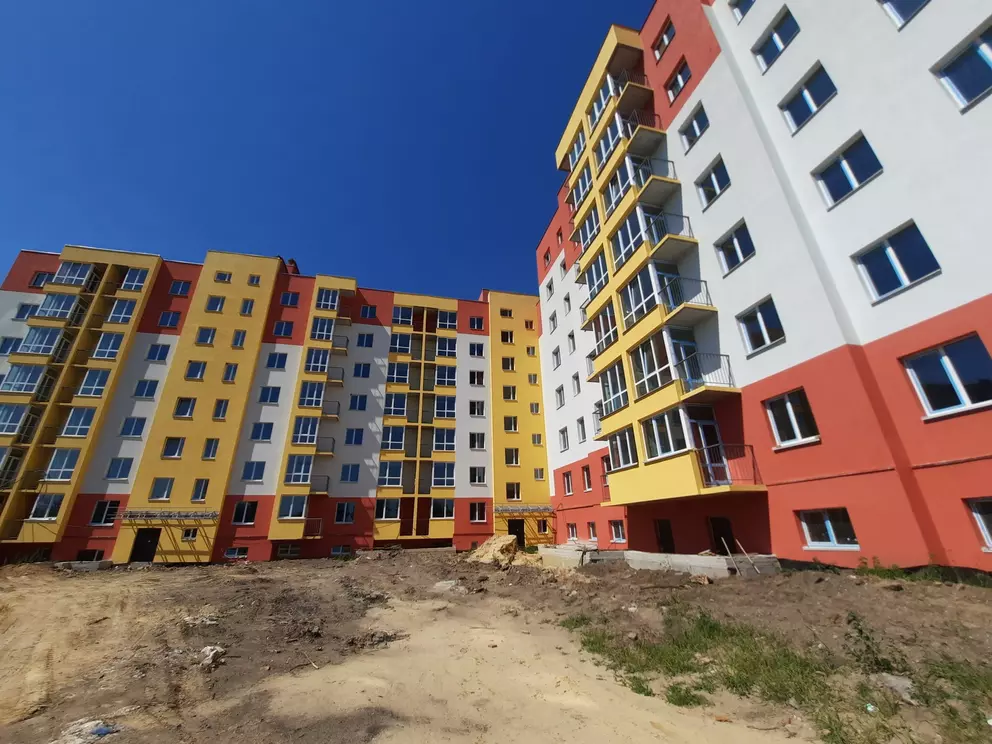
"To implement the idea in 2017, we started talking to people to understand who is ready to join and under what conditions. And based on the research results, we formed a queue for the cooperative," says Eleonora.
But only in 2020 the city government allocated a plot of land for construction, with an area of 62 acres and a million hryvnias for design and estimate documentation. "Common Cause" and the regional council signed a memorandum and planned that one of the private funds would provide preferential loans to the members of the cooperative. However, due to the full-scale invasion, loans were not issued, and the construction financing fell entirely on the shoulders of the IDPs themselves.
Serhiia Zulinskoho Street is on the outskirts of the city. It is the final stop of public transport. There are high-rise buildings similar to each other, but a forest and fields are planted with sunflowers. At the very border of civilization and nature stands a multi-colored, and visible from afar, seven-story building built by a cooperative of migrants. It still does not have its own address and is "under the guardianship" of a neighbor — at number 49.
The cooperative had to go through public hearings twice to get this piece of land. For the first time, in 2018, the documentation was incomplete. In 2019, at repeated hearings, the displaced were able to lease land for construction. In 2020, at the city council session, this plot was allocated to them, and today the cooperative pays for it.
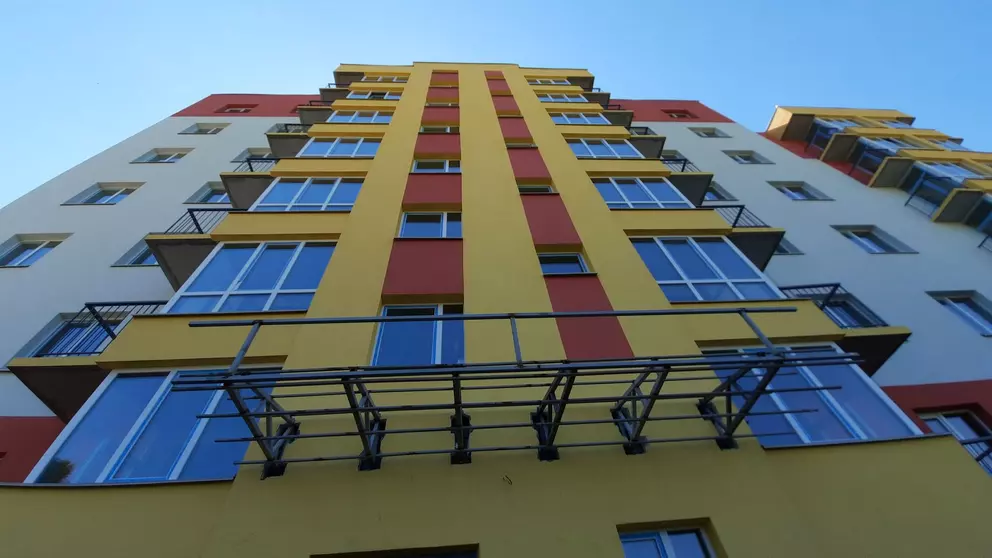
"The cooperative works like this: people make contributions and use this money to build a house," says Eleonora. "All other issues also fell on the shoulders of the owners themselves. This format was convenient for us, as we could independently choose both developers and contractors. In the future, as soon as the building is put into operation, we will create a condominium."
The building has 105 apartments — one-, two- and three-bedroom apartments. The smallest ones have an average area of 40 square meters, two rooms have 55 to 60 square meters, and three rooms have 80-86 square meters. Almost all of them have already been sold, and so far, a few three-room apartments are left for purchase. People affected by the war can purchase them.
The cost of apartments in this building is lower compared to municipal housing, where a square meter costs more than UAH 27,000. According to Eleonora Rudenko, no one earns money on this house, and there is no marginal allowance here.
"Initially, the price per square meter was UAH 9,000," says Eleonora. "But because of the war, we did not find owners for 1,000 square meters of commercial premises on the basement floor, the sale of which was included in the price of the apartments. Therefore, we had to raise the price, which is now 13,570 UAH per square meter".
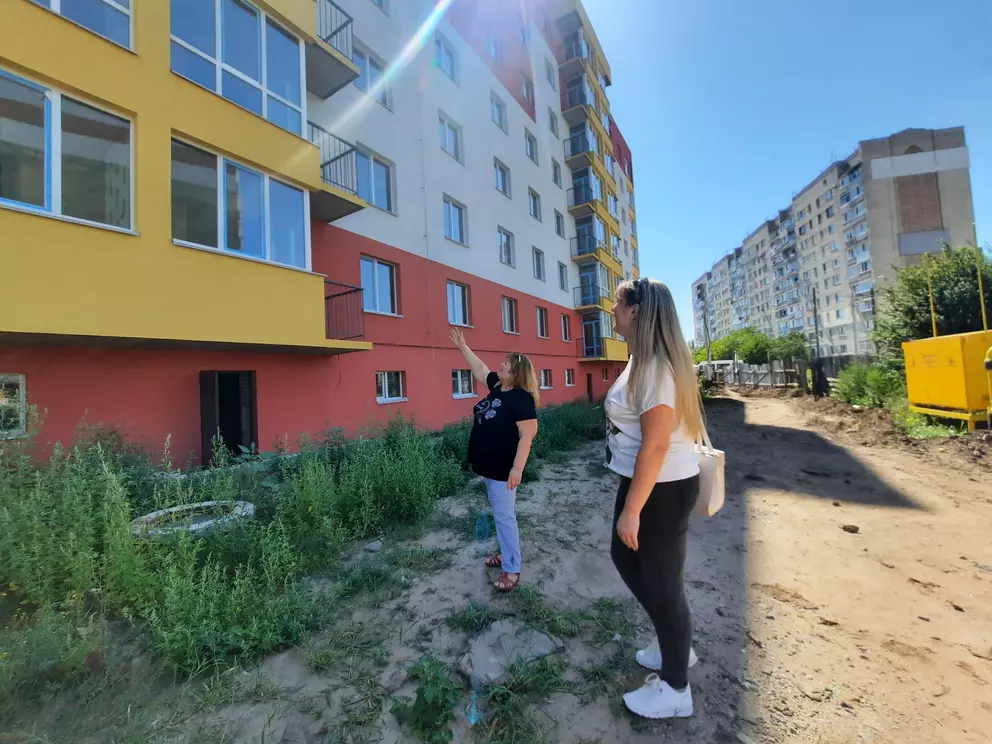
When construction began in 2020, people contributed monthly or quarterly, as it was convenient for them. Today, people who have suffered from the war — displaced persons or participants in hostilities — can also join the cooperative. But the building is already at the commissioning stage so the remaining apartments can be purchased with only one payment. Then the owners will be able to move in or resell their home to anyone and for any price.
Soon, different people will live in this house. The vast majority are migrants who came to Vinnytsia in 2014. Fewer than those who fled the war in March 2022. There are those who are now fighting for their own corner at the front.
One of the owners of the building is Tetiana. She comes from Donetsk, and in 2014, she was forced to leave her home with her husband and granddaughter. She learned about "Common Cause" through acquaintances and joined it in 2017. She started working at the point of humanitarian assistance to displaced people and volunteering and continues to do so to this day. As soon as the question arose about creating a cooperative and starting the construction of an apartment building, Tetiana immediately agreed.
"We have already lived here for a while and know what it is like to rent. That is why my husband and I decided to buy a one-room apartment because we want to have something of our own," the woman shares her thoughts and adds that she visited her apartment today and was pleased with the layout. Especially the kitchen, combined with a balcony, which makes it cozy and comfortable. "The balcony in the kitchen is just a dream," she says.
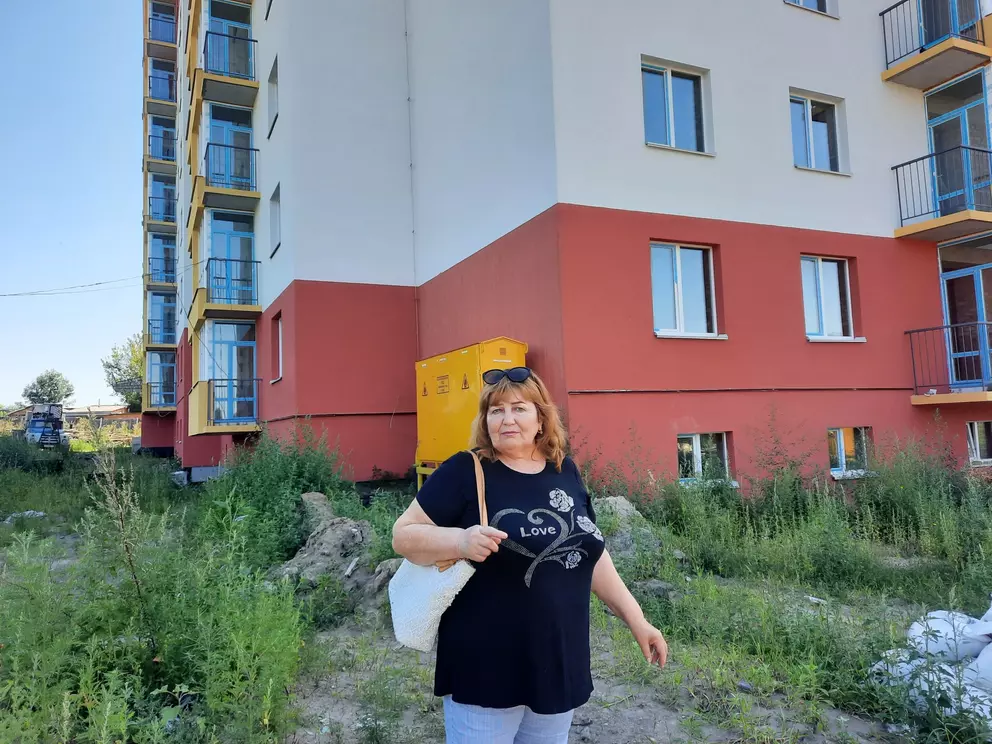
The high-rise building is not the only achievement of the social organization of the displaced people. Eleonora Rudenko says that their union takes care of people in difficult situations, employs them, and even creates jobs.
"We gathered five construction crews from among the displaced people, each of which employs about seven people," says Eleonora.
Eleonora Rudenko says that the organization — probably, like all Ukrainians — had its plans and hopes until the war intervened.
"But we still have huge plans," she says. "We started working not only in Vinnytsia but also in the Poltava and Kyiv regions. So our work is expanding because the displaced people are everywhere. We understand that we cannot solve all the issues of internally displaced persons, but we are trying to do what we can."
Rubryka reported that 11 families who lost their homes to Russian aggression received new apartments in the Kyiv region.
Rubryka also reported that 900 buildings have already been restored in the Hostomel community of the Kyiv region, of which 887 are housing stock.


























